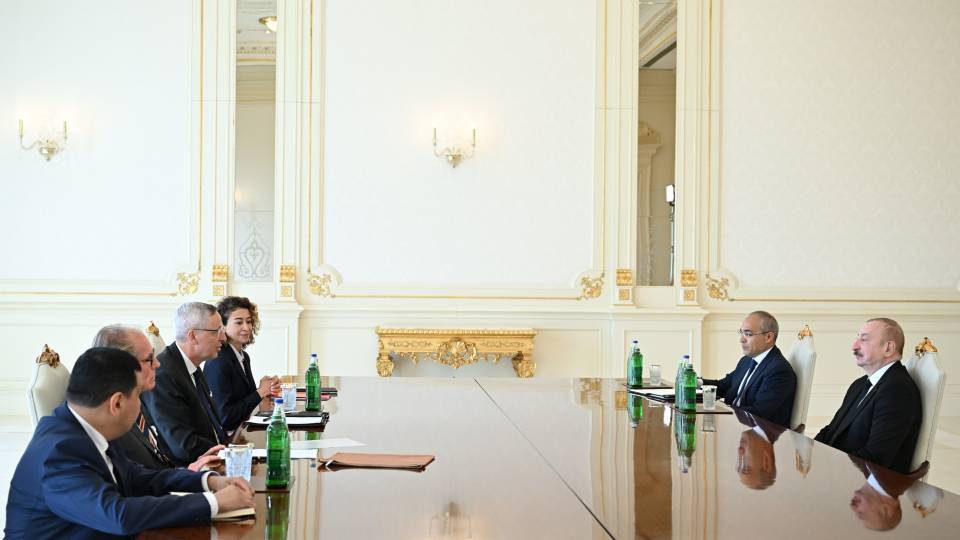13:30
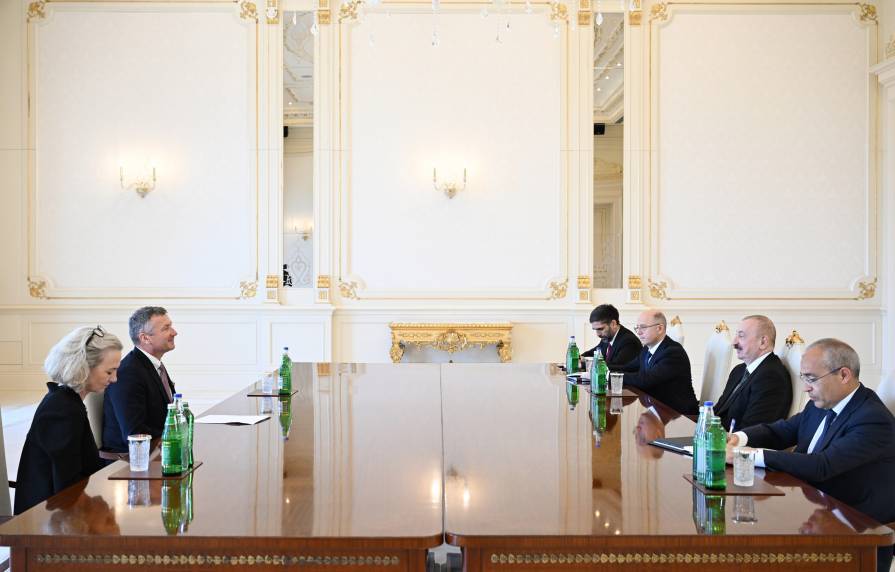
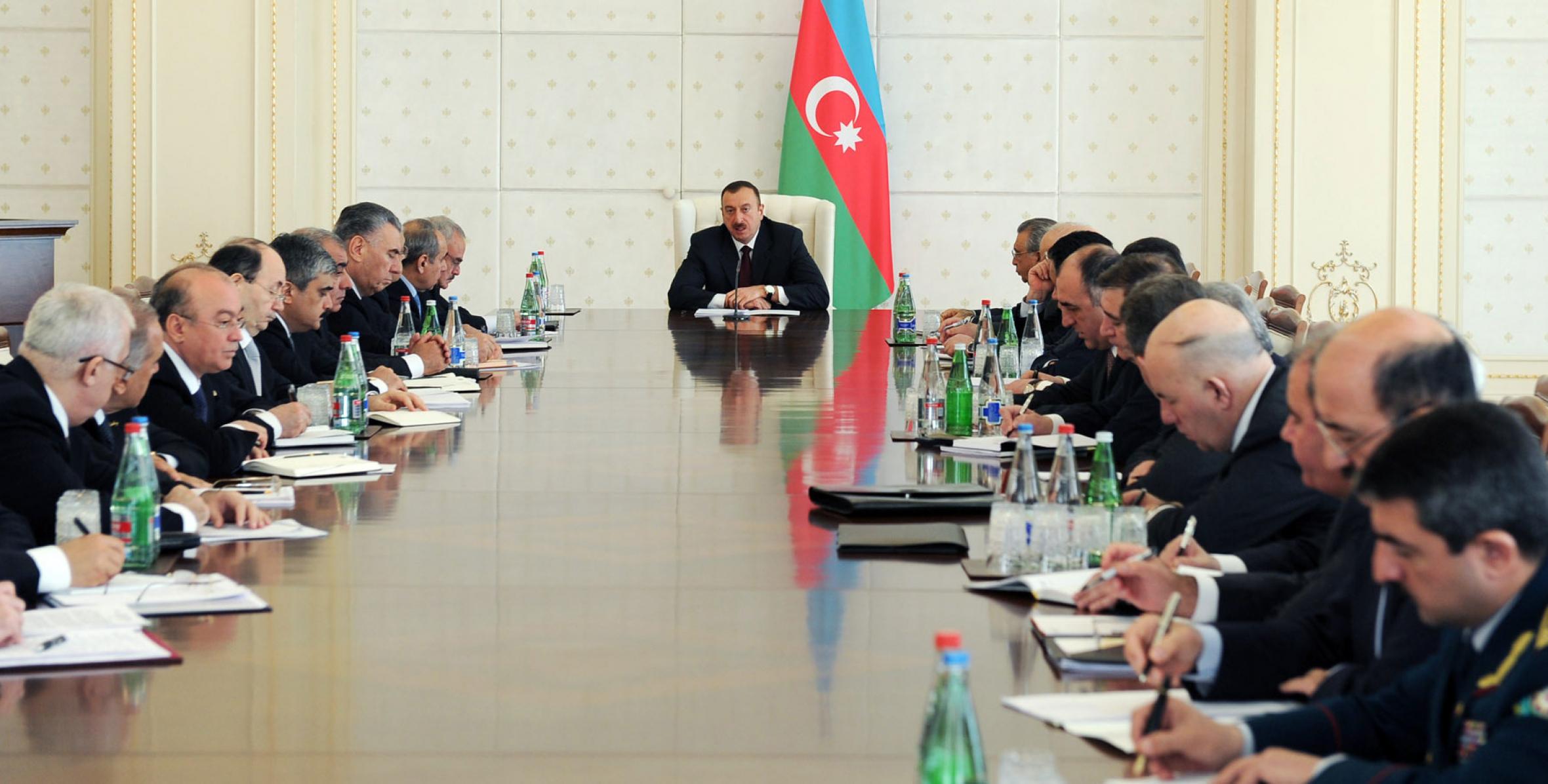
The work done in the first quarter of the year shows that the country’s economy is developing successfully, social issues are being addressed and there are specific programs for each sphere. These programs are being implemented. Government members know their obligations and are fulfilling their public duty.
The processes unfolding in the world, namely the hike in the oil price on world markets, inevitably raise inflation risks. You know that we encountered a similar situation several years ago. The oil price also shot up then – from $60 to 140, and some time later this drastic increase affected consumer prices. So higher inflation risks are not ruled out and perhaps unavoidable. In this case, we should conduct a more targeted policy on boosting anti-inflation measures. We should pay more attention to the macroeconomic stability.
Macroeconomic stability is always the focus of our attention. All macroeconomic development measures focus on this issue. Last year inflation was at an acceptable level. We can see that in the first quarter of this year inflation rose by 9.1 per cent. Both the developments unfolding in the world, the growing oil price, and the expected increase of wages and pensions in the country will inevitably impact on inflation risks. We must try to ensure that inflation stays in single digits in 2011 and all anti-inflation measures are more rigorous and focused.
There is control over consumer prices, there is permanent monitoring. We will continue to tackle these issues in the future. We must further step up fight against monopolism. The fight against monopolism both in imports and in domestic production must be even more rigorous. Sometimes when we speak of “monopolism”, we tend to associate it mostly about imports. But the latest developments, namely the picture observed on the eve of Novruz, show that there have been cases of artificial price increases on domestic goods. We took immediate measures. We took the necessary steps to regulate the artificially increased prices. Monopolism should be nipped in the bud both in imports and domestic production.
We can say that Azerbaijan’s market is rather limited. If a major producer emerges – and we want, we are interested in developing small and medium-sized enterprise, in having large companies and seeing them grow stronger; the support provided by the state, the political and economic support is already serving the emergence of major companies – then, at the same time, the major company inevitably becomes a monopolist and sometimes takes unacceptable steps to secure its interests.
In such cases, the fight against monopolism both in imports and domestic production must be further stepped up, we must prevent such negative phenomena.
The intensified fight against corruption and bribery is producing great results. This policy will be continued. This is our conscious choice and the people appreciate these measures. We must take into consideration a number of factors. This fight must be large-scale and comprehensive. Of course, we must step up administrative measures, measures of punishment will continue to be applied, public oversight must be strengthened.
While talking to people, I always urge them to raise negative phenomena. In general, public control in all spheres of life in Azerbaijan must be further stepped up. Reforms should be deepened. And this is important to anti-corruption measures. It is necessary to secure a sound competition. Unsound competition must be eliminated. There must be transparency in every sphere. We have great experience in that. We are dealing with transparency issues successfully. We can cite the Azerbaijan State Oil Fund as an example. This agency has received the highest and most positive feedback on global scale, we are ahead of many developed countries in terms of transparency. The successes made in this sphere must be attributed to all other spheres as well.
Issues relating to migration are successfully dealt with in Azerbaijan. Migration is also a manifestation of development. Several years ago I said at a Cabinet meeting that there will come a time when we will face this problems too. This time has come, and the timely establishment of the Migration Service has enabled us to regulate these processes properly. Serious measures are taken to curb illegal migration. I want to repeat that migration is a sign of development. If Azerbaijan wasn’t developing rapidly, the number of people coming to Azerbaijan for work would not be so high.
Of course, we should first protect our own labor resources. Although about a million jobs have been created in Azerbaijan lately, most of which are permanent, issues of unemployment are still there. We must ensure that citizens of Azerbaijan are provided with jobs in the first place.
At the same time, Azerbaijan is part of the global economy, and we are very positive about all integration programs. Our economy is liberal and there are all the opportunities for work. The people of Azerbaijan are hospitable, the creative and landscaping work, provision of modern services are certainly attracting migrants. At the same time, I must say that public order in Azerbaijan is protected very well and strong security measures are taken. A typical feature of our cities is that people feel very comfortable here. The crime situation in Azerbaijan is very good.
Of course, all these factors are an additional stimulus for those coming from abroad, so to speak. I want to repeat: we open our doors to all our guests coming here with good intentions. But all this must be done within legal frames, and measures against illegal migration must be continued.
Additional measures will be taken in the months ahead to develop private enterprise. Provision of loans through the National Fund on the Support for Private Enterprise has already begun. These loans cover all the districts. We already have a very positive experience in this field. The loans to be provided this year will be used in establishing new enterprises, creating new jobs, and we will succeed in further diversifying our economy. I can say that the successful results of the first quarter, namely, the growing non-oil sector, have been possible also because of the attention being paid to the private enterprise. The low-interest loans, the support for business people, the implementation of the program on the development of districts and the occasional introduction of changes to it are certainly playing a role.
A package of suggestions is being prepared now to develop grain production. Instructions were issued at previous meetings to set up major farms and create the infrastructure. Large land plots have been engaged and issues of irrigation have been resolved.
I have no doubt that the non-oil sector, agriculture and entrepreneurship will develop even faster in the years ahead, enabling us to ensure our food security.
We raised this issue several years ago. I can say that as was the case with migration-related issues, we have demonstrated far-sightedness again because when we put food security on our agenda, the issue was not so pressing on global scale.
The restrictions certain countries have introduced on exports in recent years, namely on grain production, were due to weather conditions and natural calamities. They show that our agrarian policy should be based exclusively on domestic resources. The agrarian reforms that have been under way in Azerbaijan for many years, the courageous agrarian reforms held in the 1990s and ongoing now, the support for farmers, the cancelation of taxes and the present realities are enabling us to ensure food security by relying exclusively on ourselves. A broad exchange on this issue was held in a meeting with businessmen. There is no need for repeating anything. I simply want to say that this issue should also be on the agenda permanently.
We must step up our efforts to protect the environment. Officially the Year of the Environment is over, but its spirit should apply to every year – tree planting, provision of drinking water, cleaning of oil-polluted land. Funds are envisaged for these issues in the state budget. Extra funds should also be envisaged when amendments to the state budget are introduced.
Projects relating to drinking water and sewage are currently under way throughout the country. They should proceed even faster, and it appears that the Azerbaijani state, i.e. our state budget, should bear the brunt.
I had expected in previous years too that sooner or later we will have to take on this commitment. Because, as you know, our talks with international financial institutions were delaying, certain conditions were being put forward. Today Azerbaijan’s financial capabilities are broad enough, these figures have been mentioned here. Our exchange reserves are growing. We will introduce additions to the state budget shortly. Therefore, the Azerbaijani state should bear the brunt of that. If it is possible to obtain loans on acceptable terms, on good commercial conditions, of course we should take this opportunity. But if the issue delays or the conditions are very tough, I don’t think we should apply for such loans and should work using domestic opportunities. Extra resources should be envisaged for that in our state budget, so that things proceed even faster and water and sewage issues are resolved in the country within several years.
Of course, these issues should be even more extensively covered in the program on the development of districts. The program on the development of districts does raise these issues. Specific deadlines have also been set. So even more attention should be paid to this. Of particular importance among projects relating to districts are those on the construction of rural roads. Funds were allocated for that in the past too, and new rural roads were built in different districts. I took part in their opening. These roads link tens of thousands of people, hundreds of villages. The establishment of a new infrastructure serves the development of districts and is very important to people’s comfort. I think that significant extra funds should be allocated for rural roads. Suggestions are coming from the ground. First of all, I repeat, we should build the roads linking major settlements. Of course, we should also restore, and essentially rebuild the roads that are in deplorable condition. Because most of the roads not only in districts but even in the suburban settlements and villages of Baku are earth roads.
This is absolutely intolerable. So I want to repeat that among the issues relating to settlements, those pertaining to roads, water and sewage are of priority importance.
In my opening remarks I expressed my views on the issues relating to Baku settlements. The program will be adopted this month. There should be a very rigorous control over it. The program should be occasionally analyzed by the Mayor’s Office of Baku, district executive authorities, the Ministry of Economic Development, and additions should be introduced to it. I do hope that the program will cover all the issues pertaining to settlements.
But life never stops. While implementing programs on the development of district, we faced situations when both amendments and additions were introduced to the program at certain stages. In any case, this issue is of special importance among those facing the country. Along with that, we should resolve the issues of restoration and reconstruction of schools that are in emergency condition both within the program on districts and one on the development of Baku settlements.
An enormous amount of work has been done in this area in recent years. Over 2,000 schools were built and commissioned, new buildings established. But there are still enough schools in emergency condition. Of course, there may be different views on this: what are the criteria for a school to be found in emergency condition? And there is a difference of opinion. In this regard, I have asked for a list of schools in emergency condition, specifying the districts of their location. In any case, I think there should be no schools in bad condition in Azerbaijan – they may be described as being in emergency or in bad condition. All the schools must be in good condition. Wherever reconstruction is necessary, they will be reconstructed, wherever renovation is required, they will certainly be renovated. A revised list of such schools is to be submitted to me shortly. Funds for this will be envisaged when additions to the state budget are introduced.
There are also problems with kindergartens in the country. We are aware of these problems. They emerged in the early years of our independence. Some kindergartens were privatized or were used for other ends. Some were transformed into shops, restaurants and other facilities. In other words, such unpleasant phenomena were taking place at the time. So our present kindergartens fall short of our requirements. Considering that Azerbaijan’s population is growing, which is a very positive fact, Azerbaijan’s population is 9 million people already.
The kindergartens built in Soviet times were meant for a smaller population. So this situation is very serious. I think the only real option is that new kindergartens should be built. I don’t think we should reconsider the results of privatization. This is impossible. Azerbaijan is a country adhering to a market economy. Azerbaijan is a country very safe for foreign and domestic investors, and this is our great achievement. Everyone knows that Azerbaijan is a country of its word, and the investment, both external and internal, are protected by the state. This policy will be continued in the future too. Therefore, the only option for us is to determine locations so that we could start large-scale construction of kindergartens. This is why I am issuing this instruction. This issue should be incorporated into the additions to the budget. A program on the construction of kindergartens should be implemented this year and in the coming years.
Work in the oil and gas sector is ongoing. Azerbaijan is expanding its capacities and gasification is under way throughout the country. We can say that one new village is gasified every week. The entire infrastructure is being upgraded, work is conducted at a modern level. I think that key gasification issues will be resolved in the next two years.
In the first quarter of the year, the European Union and Azerbaijan signed a declaration on the Southern gas corridor. The declaration secures the interests of both parties. It describes Azerbaijan as a supplier of European consumers and a country providing assistance. This declaration is very meaningful. Azerbaijan’s vast gas resources are and must be delivered to world markets in different ways. We must make the most efficient use of our abundant gas resources and increase production in the near future. To do that, we certainly need to increase the volume of gas on existing markets and try to access new ones. Bilateral talks are currently under way with different countries, and of course the relations between the European Union and Azerbaijan, the documents signed will be an important step towards resolving this issue.
All our work on power generation is done at a proper level. Azerbaijan has already turned into an exporter of electricity. We are exporting electricity to neighboring countries. Along with that, we are further raising our domestic energy capacities. In the coming years we should pay more attention to renewing the power lines because we have sufficient generating capacities. The 25 megawatt Fizuli hydro power plant and the 800 megawatt Janub power station are to be commissioned this year. According to different estimates, we currently have an additional energy capacity of about 1,000 megawatts which we are not using. In the future, we must deal with electricity exports more seriously of course. To do that, as is the case in the gas sector, we must increase exports to existing markets and, at the same time, access new ones. With this aim, the construction of power lines with a capacity of 55 kilovolts has started between Azerbaijan and Georgia. A new large substation has been built in Samukh for this purpose. I have recently attended its opening. So we need all this to be able to export electricity to the maximum extent possible. This must become our third most important export line after oil and gas. In parallel, the process of developing renewable energy sources is under way, new small hydro power plants are under construction, the foundation of some has already been laid. The construction of new small hydro power plants is on the agenda, and the process of creation of other alternative sources of energy is under way in Azerbaijan.
Extra measures must be taken to build trunk roads. A lot has already been done. Work is under way on all trunk roads. Inter-city and local roads are under construction. I think we must speed up work in this area by the end of this year by allocating extra funds. Namely, additional funds must be envisaged to continue the construction of the Baku-Russian border road, so that we could complete it soon. Most of the road is already in line with international standards. We must also ensure construction of the section near the border. One part of the Baku-Georgia road is two-lane, another is four-lane. If we consider that this road is very busy, we must expand the two-lane section to four lanes. I hereby resolve that the road from Baku to the Georgian border should be four-lane.
Extra funds should be envisaged to start this project. Construction of the Baku-Iranian border road is progressing on schedule. This road was designed as a four-lane one. Work is progressing on schedule there. I regularly examine road construction, and work is being done properly.
The Baku-Shamakhi road. It is part of the Baku-Balakan road. It was also built as a two-lane road. I think necessary measures should be taken to expand it to four lanes, to make it more comfortable for driving.
New road junctions, bridges and tunnels are being built in Baku. This work is under way in different parts of our city. Construction of local roads is also part of the program on the Baku settlements. This work must proceed faster. Additions will be introduced and corrections made to the budget soon to do this work. Relevant instructions have been issued and suggestions are being prepared now. We must remember that we have extra financial resources, the oil price has risen in the world. It would be natural if we resolved all the outstanding issues this year, without leaving them for the next year. The issues I have mentioned, the infrastructure projects, construction activities, social measures – this has been spoken about here – should be incorporated into the corrections in the first place.
Social measures are regularly taken in Azerbaijan. Additional measures are taken both as part of long-term programs and as necessary. Among these I would like to point to the recent writing off of population arrears for water. This shows how strong our social policies are. This is a well-meant and, I think, correct step. It is correct from the standpoint of social justice. It may not be very correct from the standpoint of market economy principles. But the main issue for us is the right prioritization. Social issues are of top priority. It is also true that if we don’t have strong economic indicators, no social issues can be resolved. Therefore, corrections should envisage a broad social package, issues of raising wages and pensions must and will be resolved. Namely, the pensions of those who retired before 2006 should be raised because there is a certain injustice in this sphere. This injustice emerged because new rules were introduced after 2006, and those who retired after 2006 are receiving higher pensions. There are over 900,000 people in Azerbaijan who retired before 2006.
In general, we have about 1,300,000 pensioners. Of them, 900,000 retired before 2006. So we should first improve their pensions, there should be no discrimination in this area and the elderly should receive a proper pension. This is our duty, they worked and tried very hard, they have created this country, played a great role in its development. It is our duty to improve their material security. We do this regularly. Namely, this year we must raise the pensions of those who retired before 2006.
All other issues are being resolved. I want to repeat that our government members know their responsibilities well. In general, work in the country is progressing well. This is confirmed by the results of the first quarter of 2011. In the coming months and for the rest of the year, we should work with the same determination and professionalism to fulfill all the tasks facing our country.
Thank you.

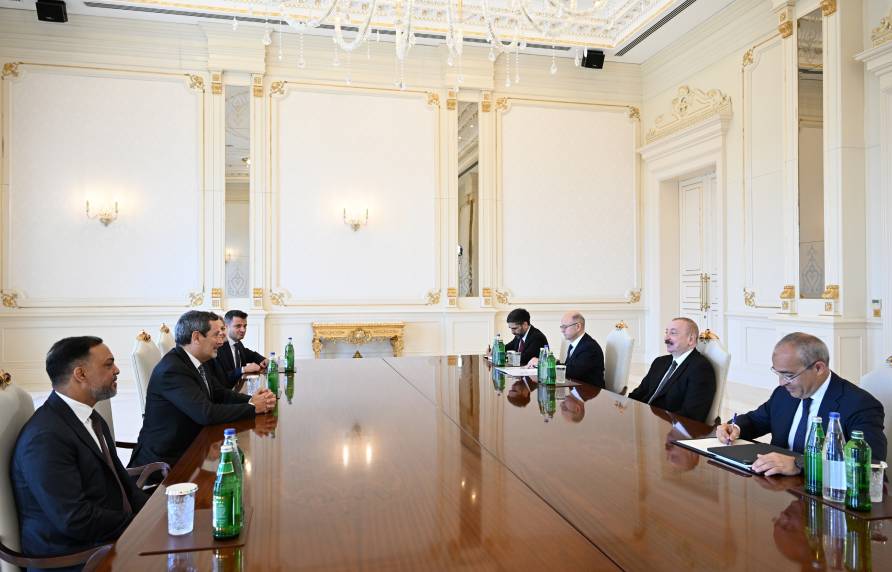
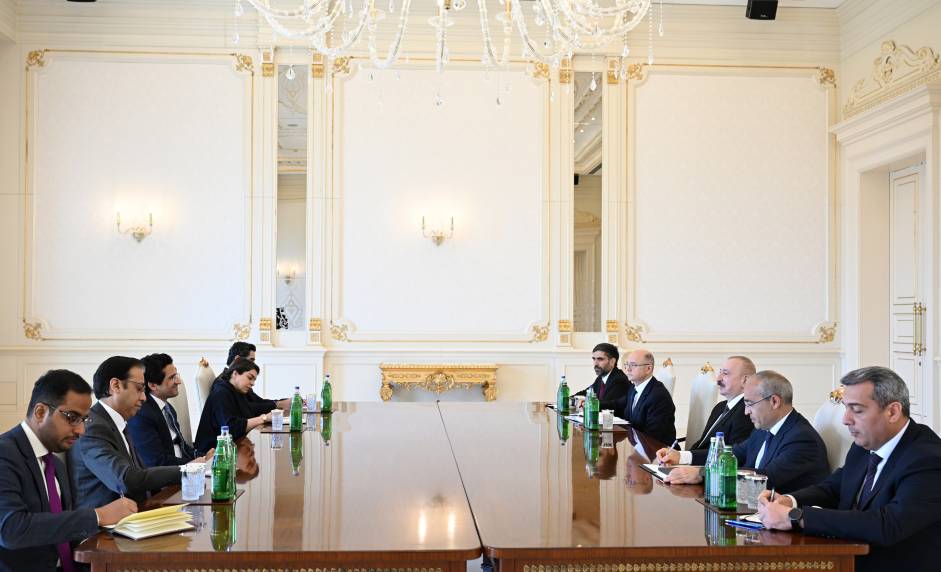
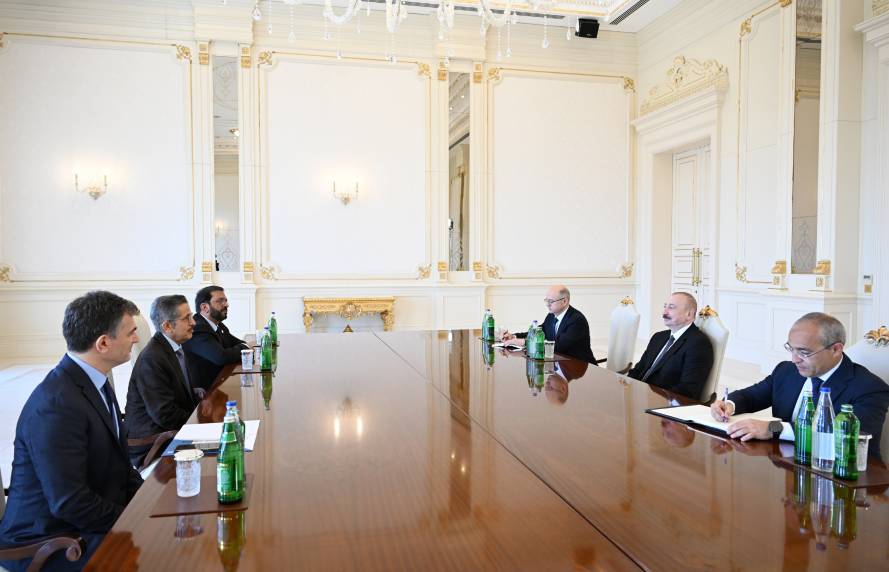
Dear participants of the event,
Distinguished guests, ladies and gentlemen,
Very warm greetings on the start of the Baku Energy Week.
This significant event serves as an important platform for the presentation of our achievements in the energy sector and the...
02 June 2025, 11:57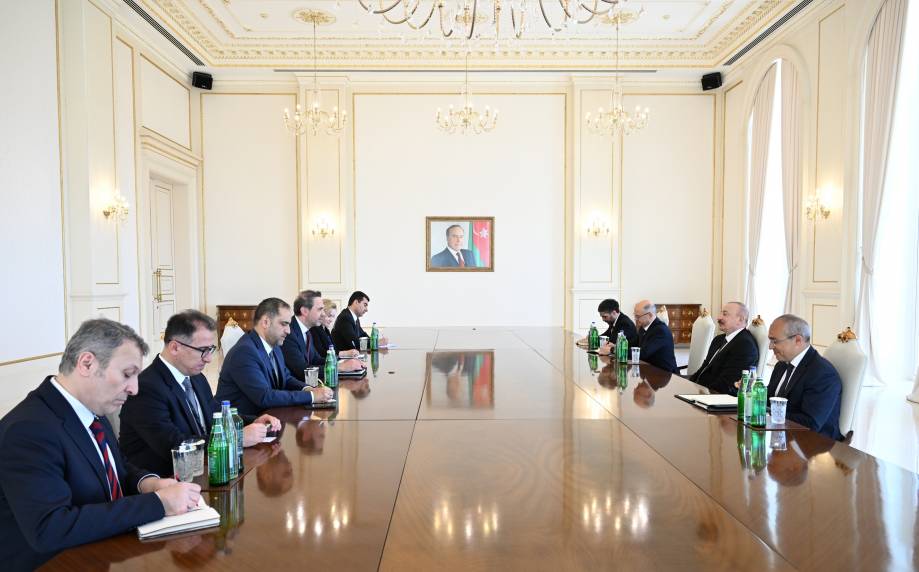
Dear Mr. President,
On behalf of myself and the people of Azerbaijan, I sincerely congratulate you and, through you, the friendly people of your country on the occasion of June 2 - the Republic Day - extending my best wishes.
We are pleased with the dynamic and...
02 June 2025, 11:07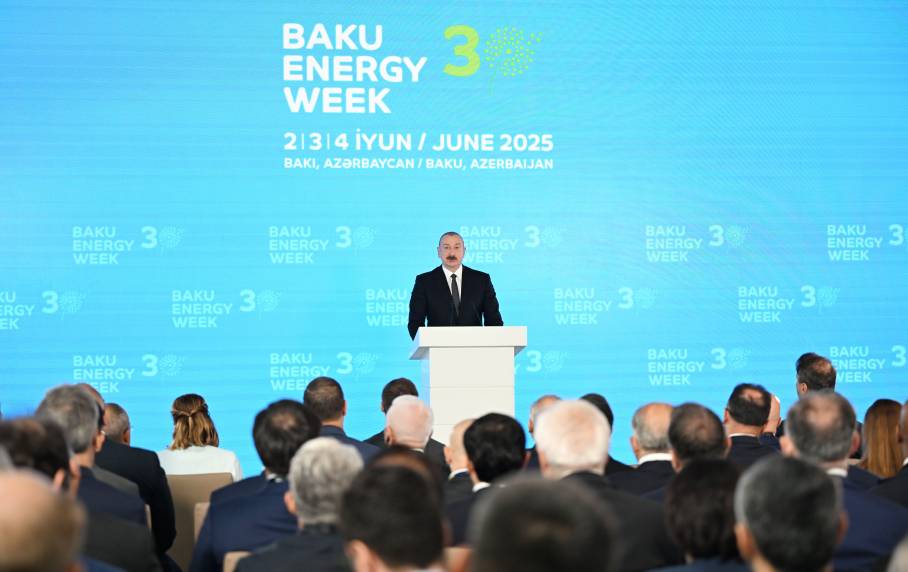
His Excellency Mr. Ilham Aliyev, President of the Republic of Azerbaijan
Your Excellency,
On behalf of the state and the people of Vietnam, allow me to extend my warmest wishes to you on the 107th anniversary of Independence Day of the Republic of Azerbaijan.
As a...
30 May 2025, 19:18On May 30, Ilham Aliyev, President of the Republic of Azerbaijan, made a phone call to Sheikh Mohamed bin Zayed Al Nahyan, President of the United Arab Emirates.
During the telephone conversation, both Presidents expressed their satisfaction with the development of...
30 May 2025, 19:12His Excellency Mr. Ilham Aliyev, President of the Republic of Azerbaijan
Your Excellency,
On the occasion of the Independence Day of the Republic of Azerbaijan, I am pleased to extend my heartfelt congratulations to you and the people of Azerbaijan.
Please accept my...
30 May 2025, 13:29